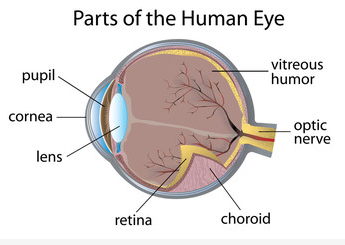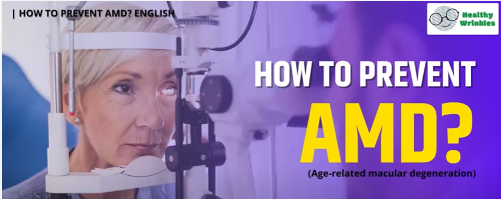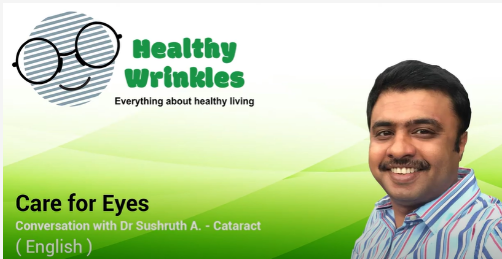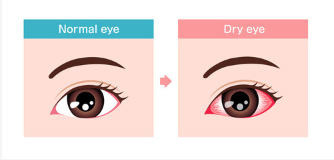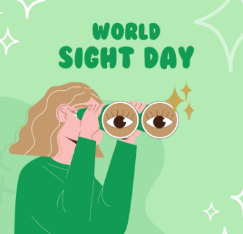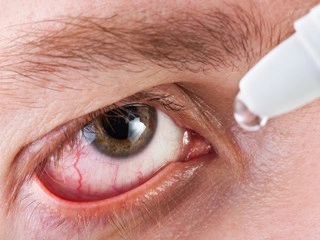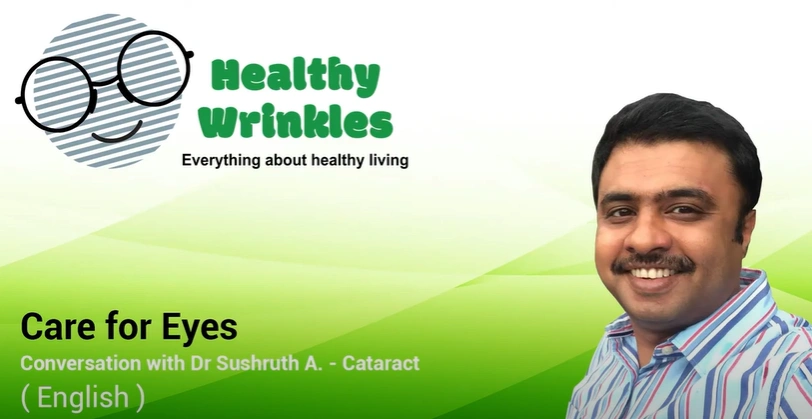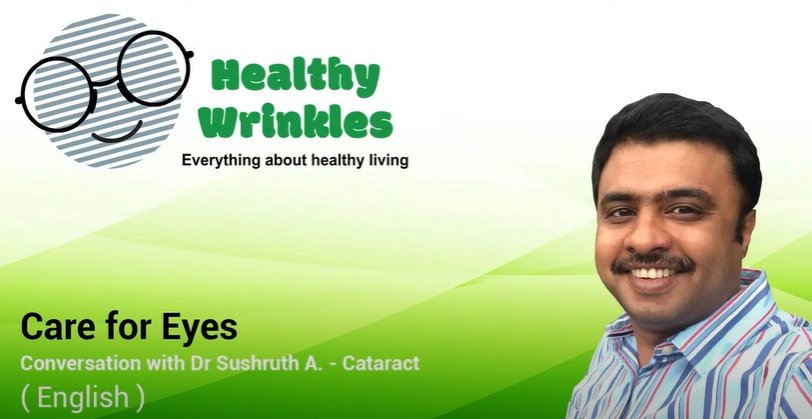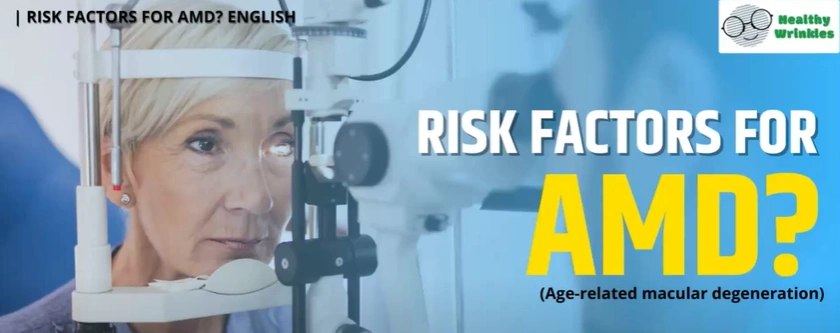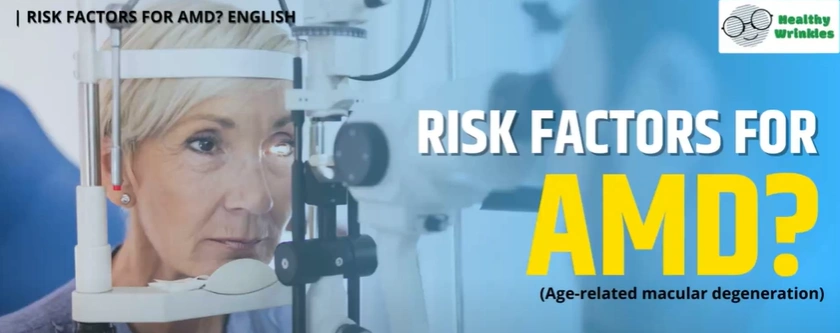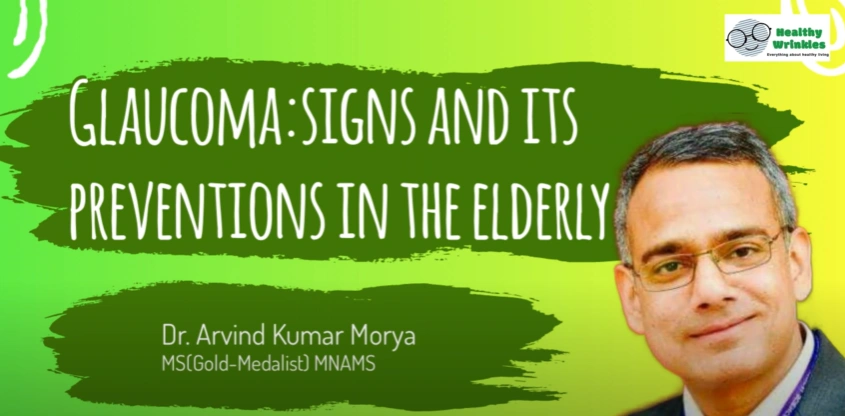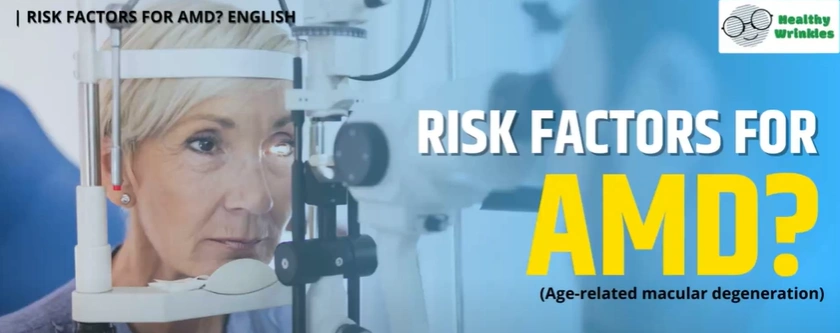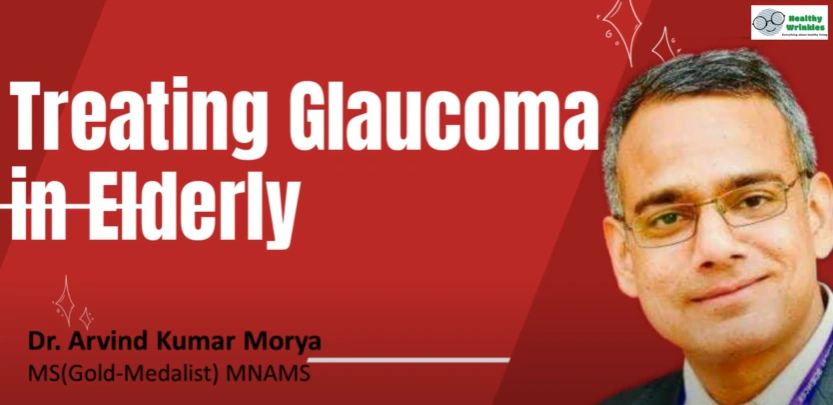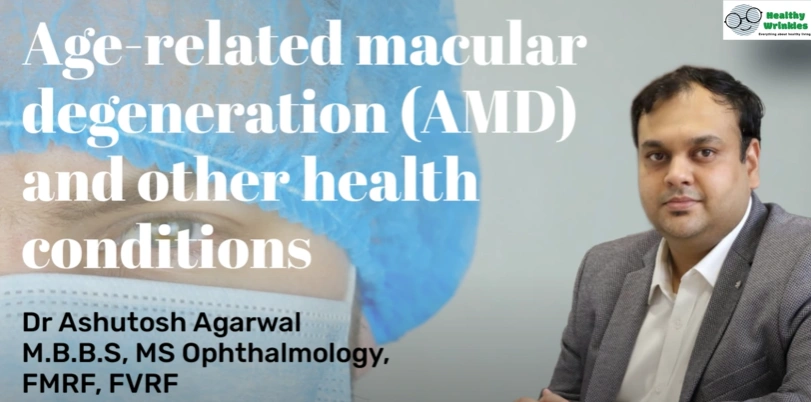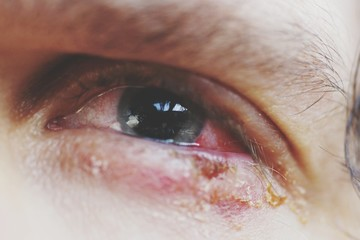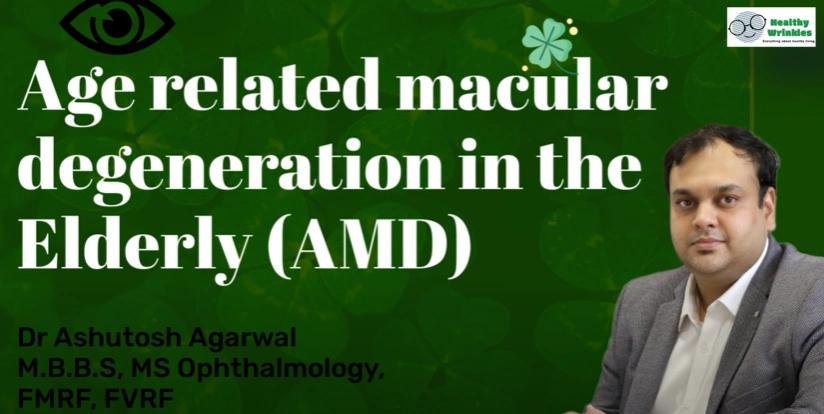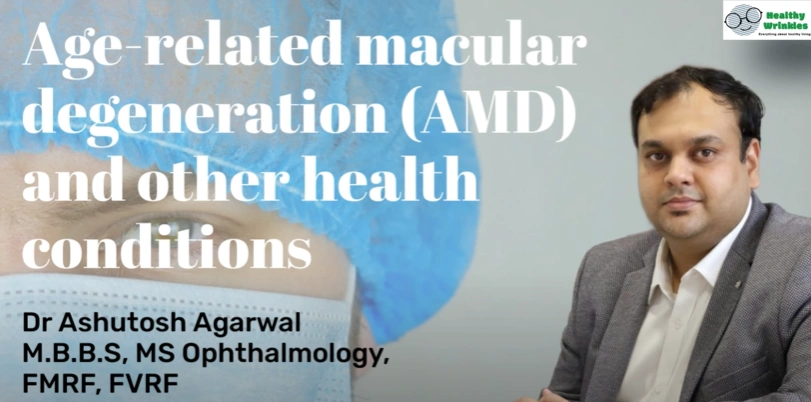Age-Related Macular Degeneration: Risk Factors Diagnosis and Treatment by Dr. Ashutosh Agarwal
01-10-24
Dr. Ashutosh Agarwal, an Ophthalmologist in a conversation with Healthy Wrinkles, explains Age-related macular degeneration(AMD) in the elderly. In this blog, we will delve into the risk factors associated with AMD, the importance of early diagnosis, and the cutting-edge treatments offered by Dr. Agarwal to combat this prevalent eye disorder. Watch our curated YouTube playlist to learn more about eye care for the elderly.
Understanding AMD and Its Risk Factors:
As Dr. Agarwal highlights, the risk of AMD increases with age, particularly for individuals over 50 years old. Non-modifiable risk factors include exposure to ultraviolet rays, while smoking and tobacco consumption stand out as the main modifiable risk factors. Additionally, those of Caucasian origin and individuals with a family history of AMD face an elevated risk. Diabetes and hypertension, though not directly impacting AMD progression, can cause retinal damage, emphasizing the need for overall health management. Learn more about the common eye problems in elderly population.
Importance of Regular Eye Exams:
Early AMD may manifest without noticeable symptoms, making regular eye exams crucial for individuals with risk factors. Dr. Agarwal recommends comprehensive dilated retina examinations, a simple and painless process where eye drops are used to widen the pupil. This allows for a thorough examination of the retina, with additional tests like Optical Coherence Tomography (OCT) providing microscopic insights into the layers of the retina. Read more about the role of geriatricians in managing chronic health conditions.
Diagnosis and Staging:
The diagnosis of AMD involves a meticulous approach. Dr. Agarwal explains that OCT angiography, a non-invasive test, is increasingly preferred for staging AMD, providing detailed information about the disease. Fundus fluoroscein angiography, while slightly invasive, may be recommended based on the retina doctor's assessment. Proper diagnosis and staging set the stage for effective treatment strategies.
Treatment Approaches for AMD:
AMD treatment is divided into early (dry) and late (wet) stages. In the early stages, antioxidant tablets are prescribed to slow down disease progression. Home monitoring using the Amsler chart aids in detecting progression to the late stage. Regular follow-ups are essential, as late-stage AMD requires active treatment.
For late-stage or wet AMD, characterized by bleeding underneath the retina, Dr. Agarwal emphasizes the use of intravitreal anti-VEGF agents. Administered via injections into the eye, these agents are the gold standard for treatment. While the procedure may sound intimidating, Dr. Agarwal assures that it is quick, painless, and bloodless, with the injections typically required monthly initially. Following the initial injections, the frequency decreases, but regular follow-ups remain crucial to detect any reactivation.
Additional Treatment Modalities:
Beyond anti-VEGF agents, Dr. Agarwal mentions laser photocoagulation and photodynamic therapy as alternative treatments, though they are rarely used today.
Conclusion:
In navigating the complexities of AMD, understanding risk factors, early diagnosis, and embracing cutting-edge treatments is paramount. Dr. Ashutosh Agarwal's expertise provides valuable insights into the multifaceted approach to AMD, offering hope for those at risk and enhancing the quality of life for those already affected. Regular eye check-ups and proactive management can make a significant difference in preserving vision and preventing irreversible central vision loss associated with late-stage AMD.
Whether you are searching for informative articles, or looking for healthcare providers, Healthy Wrinkles is an excellent resource for all your senior care needs. We also have a great compilation of all the medical expert talks for healthy aging on Healthy Wrinkle YouTube channel.
"Join the cause and make a difference in a senior's life - share your knowledge about local senior care resources today!"
Disclaimer: Healthy Wrinkles does not recommend or offer any medical diagnosis, treatment, or advice. The information provided here is only for the awareness of disease or ailment among individuals, caregivers, and the public. The advice of doctors, licensed professionals, or therapists who are knowledgeable about your particular situation should always be sought before using the information provided here. It should also not be used in the event of a medical emergency or for the diagnosis or treatment of any medical condition. If you want urgent assistance, contact a qualified medical professional. Additionally, the information represents the author's views and not those of Healthy Wrinkles.
#AMD #eyecare #cataract #prevention #healthyaging #healthywrinkles #elederlycare #opthomology

